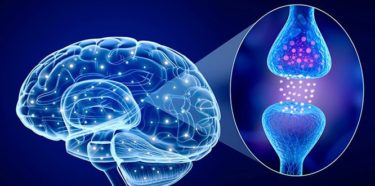Prolactin is a hormone secreted by the pituitary gland and also known as milk hormone. Prolactin hormone is allows breasts to produce milk after birth and supports sexual desires. High levels of prolactin may caused by some drugs, diseases and tumors. Vaginal dryness and milk production from breasts without of birth are the main symptoms. It also may cause problems such as sexual reluctance in both gender, stress, headaches, visual disturbances and bone resorption. Elevated prolactin levels may treated with medication. Alternatively, surgery or radiotherapy may be used. Low prolactin occurs in women with complaints of inability to produce milk after childbirth and sexual reluctance in men.
Table of Contents
What is prolactin?
Prolactin, shortly called PRL, is a hormone secreted by the pituitary gland located in middle of the brain. This hormone is also produced in the uterus, immune cells, brain, breast, prostate, skin and adipose tissue in humans. Prolactin, which enables breasts to produce milk in women, is effective on sperm production in men. It determines sexual desire and impulses. Both high and low levels of prolactin hormone may can cause health problems.
What does prolactin do?
Prolactin has more than 300 functions in the body. These functions are reproductive, metabolic, regulation of fluids, regulation of the immune system and behavioral functions. However, main task is to stimulate the production of breast milk after birth. It also supports sexual desires in both gender.
Prolactin (PRL) normal values
Whether your prolactin levels are normal should be assessed by your doctor, taking into account your general health status. Values are evaluated in units of ng/ml (nanogram/milliliter). Although it may vary, the normal values are as follows:
- For non-pregnant women who have not given birth: It should be below 25 ng/ml.
- For pregnant women have given birth: It is in the range of 34-386 ng/ml.
- In men: It should be below 15 ng/ml.
High prolactin levels
What is hyperprolactinemia?
Excessive elevation of prolactin values is called hyperprolactinemia. Some diseases or drugs can trigger an increase in values, but generally benign, non-cancerous tumors can cause an increase in values. These tumors can be treated with medication and/or surgical intervention.
Causes of high prolactin levels
Prolactin-elevating drugs
- Antidepressants
- Opiate medicines
- Hypertension medications
- Estrogen-containing drugs; some birth control pills
- Reflux medicines
- Epilepsy medications
Prolactin-elevating diseases
- Some chronic diseases, such as acromegaly, chronic renal failure
- Some systemic diseases, such as sarcoidosis
- Stress related diseases
- Trauma to the chest wall
- Low thyroid hormone
Symptoms of high prolactin
In women:
- Menstruation and/or irregular menstruation
- Milk production in the breast other than birth
- Loss of sexual desire
- Vaginal dryness
In men:
- Loss of sexual desire
- Erectile dysfunction in the sexual organ
- Reduction in body hair
- Unusual growth of the breasts

In both sexes:
- Osteoporosis
- Vision problems
- Headache
Does high prolactin levels prevent pregnancy?
High prolactin prevents ovulation, making it difficult to get pregnant. However, it certainly does not prevent pregnancy. It is recommended that you take the necessary precautions under the control of your doctor to get pregnant.
The mother with high values may need special treatment for the baby’s health. You should consult your doctor about drug use or tests.
Side effects of high prolactin levels
- Low estrogen and testosterone hormones
- Stress and irritability
- Headaches
- Osteoporosis
- Loss of sexual desire
- Visual disturbances
- The secretion of milk from the breast in women who are not pregnant and have not given birth
- Long lasting menstruation in women, vaginal dryness and related pain
- Erection problems in men, hair loss in the body, breast milk and breast growth although rare
Diagnosis of high prolactin levels
Diagnosis of prolactin elevation is made by blood test. Afterwards, some other hormone tests may be needed to investigate the causes of high values, and imaging tests such as brain tomography to detect tumor possibility may be needed.
Treatment of high prolactin
First of all, it is necessary to start treatment by investigating the causes of elevation. If the values are not too high, it may not require treatment. If another medication is causing elevation, your doctor may ask you to stop taking the medication for several days. With a repeated blood test, he/she will monitor your values and recommend a counterpart of the drug you are taking that does not increase the prolactin, if he/she deems necessary.
High prolactin medication
Drugs used in treatment:
- Cabergoline: It is taken one or two doses per week. In general use, 1 tablet is 0.5 mg. Higher doses may be required under the supervision of your doctor. Long-term use may require dose changes.
- Bromocriptine: It is taken two or three doses per day. 1 tablet is 2.5 mg.
- Kinagolid: It is taken a dose daily.
These drugs are safe and many patients can tolerate the side effects of them. In order to minimize side effects such as dizziness and headache, it should be taken on a full stomach. Cabergoline should be taken with biscuits, milk/tea before bedtime. Drug therapy usually shows its effect within a few weeks.
If the treatment is positive, there will be an increase in sexual desire and performance. If there is a tumor that causes high values, no shrinkage of the tumor, or a pressure on the pineal gland, your doctor may recommend continuing medication or surgery.

Remarks about medicines are for informational purposes only. You should consult your doctor to find out how to determine the right medicine for treatment and how to use it.
High prolactin surgery
Your doctor may recommend surgery to remove the tumor if prolactin levels cannot be reduced by medication or if the tumor does not shrink. Depending on the location and size of the tumor, closed (endoscopy) or open surgical methods can be performed.
Transsphenoidal surgery (Endoscopic method)
Closed surgery, ie endoscopic surgery, is the preferred method if the tumor is small and not spread widely. The operation is entered through the nose and started by the ear, nose and throat surgeon, and is continued by neurosurgeon after the pineal gland is reached.
Because there are no other parts of the brain being touched during the operation, it involves less risk and complications than open operations. In addition, the healing process is much faster and does not leave a visible scar on the patient.
Transcranial surgery (Open surgery)
If the tumor is large or has spread to nearby brain tissue, this procedure, also known as craniotomy, may be needed. The surgeon reaches the tumor from the upper part of the skull. The healing process is longer and the risks and complications are higher than closed surgery. It should be applied by a specialist physician experienced in open surgery, and a hospital with proper hygiene conditions should be preferred.
The success rate of both surgical methods depends on the size of the tumor, its location, the level of prolactin before surgery and the skill of the surgeon. The higher the prolactin level, the more difficult it is to return to normal after surgery.
After surgery, prolactin levels return to normal in most patients. In some cases, however, the pituitary tumor may recur within the next five years. For people with larger tumors that can only be partially removed, postoperative drug therapy may restore the hormone level to a normal range.
Radiotherapy
It is another method that can be used in cases where drug treatment and surgical intervention are not sufficient. Although not preferred due to possible side effects, it may be applied if deemed necessary.
How to lower prolactin levels?
Apart from drug treatments, surgical interventions and radiotherapy, some life changes may also help to lower the level of prolactin:
- Stay away from stress.
- Avoid heavy work and do not tire your body excessively.
- Choose clothes that the chest area will be comfortable.
- Eat foods rich in vitamin B6 and vitamin E: Foods including vitamin B-6 and vitamin E such as milk, eggs, chicken livers, steak, sweet potatoes, tomatoes, broccoli, spinach, bananas, avocados, and kiwis are recommended to be consumed.
Causes of low prolactin levels
Low prolactin hormone is much less common than the high one. It may be mainly caused by the reasons such as excessive dopamine secretion in the body, the pineal gland not secreting enough hormones, some diseases caused by disorders of the immune system, growth hormone deficiency.
Side effects of low prolactin
Low prolactin may cause insufficient milk production and decrease in ovarian function in women. Lack of milk after birth is one of the main symptoms. It also causes premature ejaculation or erectile problems in men.
Treatment of low prolactin
Drugs are not very effective in the treatment. The cause of the low level should be investigated, then the causative factors should be avoided and a qualified dietician for nutritional advice should be consulted when necessary. Your dietitian and doctor can provide you with a customized roadmap for treatment.




